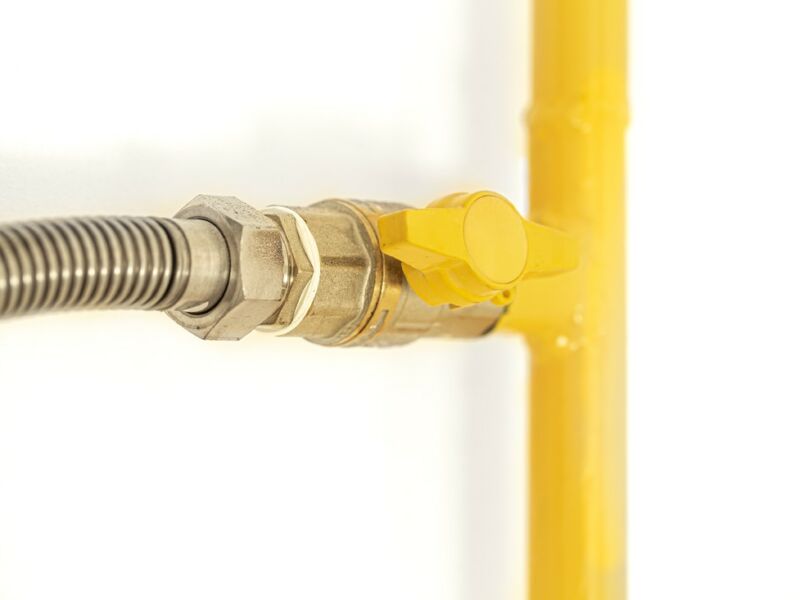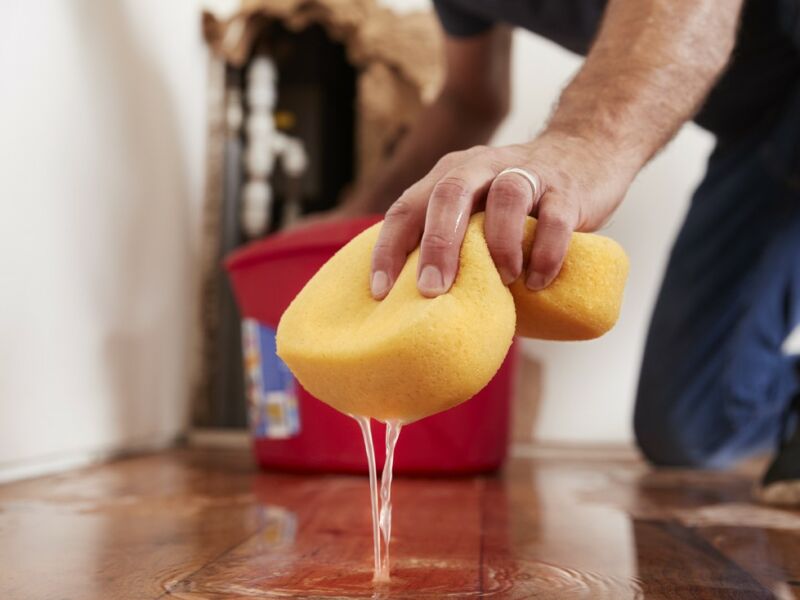
Common Causes of Pipe Leaks
Pipe leaks can cause significant damage to your property and lead to expensive repairs. Understanding the common causes of pipe leaks can help you take preventive measures and address issues promptly. Here are some of the main factors that contribute to pipe leaks:
1. Age and Wear
Over time, pipes can deteriorate due to age and general wear and tear. Older homes with outdated plumbing systems are more susceptible to pipe leaks. The materials used in older pipes, such as galvanized steel or cast iron, are more prone to corrosion and rust.

2. High Water Pressure
Excessive water pressure can put strain on your pipes, causing them to develop cracks or leaks. If you notice frequent pipe leaks in your home, it might be worth checking your water pressure and considering installing a pressure regulator to prevent further damage.
3. Temperature Changes
Extreme temperature changes, particularly during freezing winter months, can cause pipes to expand and contract. This expansion and contraction can weaken the pipes over time and lead to leaks. Insulating exposed pipes and keeping your home properly heated can help prevent this issue.
4. Corrosion

Corrosion is a common problem in plumbing systems, especially for pipes made of copper or steel. Chemical reactions between the water and the pipe materials can cause corrosion, leading to leaks. Regular pipe inspections and maintenance can help identify and address corrosion early on.
5. Tree Root Intrusion
Invasive tree roots can penetrate underground pipes, causing them to crack or break. This is especially common in older homes with clay or concrete pipes. Regularly inspecting your property for tree root intrusion and taking preventive measures, such as installing root barriers, can help prevent pipe leaks.
6. Poor Installation or DIY Repairs
Pipes that are poorly installed or that have been repaired using DIY methods are more likely to develop leaks. Hiring a professional plumber for proper installation or repairs can save you from potential leaks in the long run.
How to Fix Pipe Leaks
Fixing a pipe leak depends on the severity of the damage and the location of the leak. Here are some common methods used to fix pipe leaks:
1. Pipe Patching or Clamping
In cases where the leak is small and easily accessible, pipe patching or clamping can be a temporary solution. This involves using a patch or clamp to cover the leak and stop the water flow until a permanent fix can be implemented.
2. Pipe Replacement
If the pipe damage is extensive or the pipe is beyond repair, replacing the affected section or the entire pipe may be necessary. This typically requires the help of a professional plumber to ensure proper installation.
3. Epoxy Pipe Lining
Epoxy pipe lining is a non-invasive method used to repair pipe leaks from the inside. A specialized epoxy resin is applied to the inside of the damaged pipe, creating a new, leak-free lining that restores the pipe’s integrity.
4. Repiping
In cases where the plumbing system is outdated or has extensive damage, repiping might be the most effective solution. This involves replacing all the old pipes in the system with new ones, ensuring a more reliable and durable plumbing system.
Preventing Pipe Leaks
While dealing with pipe leaks promptly is important, preventing them from occurring in the first place is even better. Here are some preventive measures you can take to avoid pipe leaks:
1. Regular Pipe Inspections
Regularly inspecting your pipes for signs of damage, corrosion, or leaks can help you catch issues early on and address them before they become major problems. Consider hiring a professional plumber for thorough pipe inspections.
2. Proper Installation
Ensuring that your pipes are properly installed by a licensed plumber can minimize the risk of leaks due to poor workmanship or faulty connections. Don’t hesitate to ask for references or certifications when hiring a plumber.
3. Insulate Exposed Pipes
Insulating exposed pipes in areas prone to freezing temperatures can prevent them from bursting or developing leaks. Use insulation sleeves or pipe wraps to protect your pipes from extreme temperature changes.
4. Monitor Water Pressure
Keep an eye on your home’s water pressure and invest in a pressure regulator if necessary. Maintaining moderate water pressure can reduce strain on your pipes and minimize the risk of leaks.
5. Avoid Chemical Drain Cleaners
Chemical drain cleaners can corrode your pipes over time, leading to leaks. Consider using natural alternatives or contacting a professional plumber for safe and effective drain cleaning methods.
Emergency Pipe Leak Repair
In the event of a pipe leak emergency, it’s crucial to take immediate action to minimize damage to your property. Here are the steps to follow:
- Turn off the water supply to the affected area or the entire house if necessary. Locate the main shut-off valve and close it to stop the water flow.
- If there is any electrical equipment near the leak, turn off the electricity to avoid potential hazards.
- Remove valuable belongings from the affected area to prevent water damage.
- Contact a professional plumber for emergency pipe leak repair. A skilled plumber can quickly assess the situation and provide the necessary repairs.
- Contact your insurance company to report the pipe leak and inquire about coverage for the damages.
By acting swiftly in the case of a pipe leak emergency, you can minimize the risk of further damage and reduce repair costs.
Frequently Asked Questions (FAQ)
What should I do if I discover a pipe leak?
Can I fix a pipe leak myself?
Dealing with pipe leaks quickly and effectively is essential to protect your property and avoid extensive damage. If you require professional pipe repair services in Las Vegas, contact JGW Group Water Damage Restoration Las Vegas at 725-240-0640 or visit their website https://jgwgroupwaterdamagerestoration.com/nevada/las-vegas.



